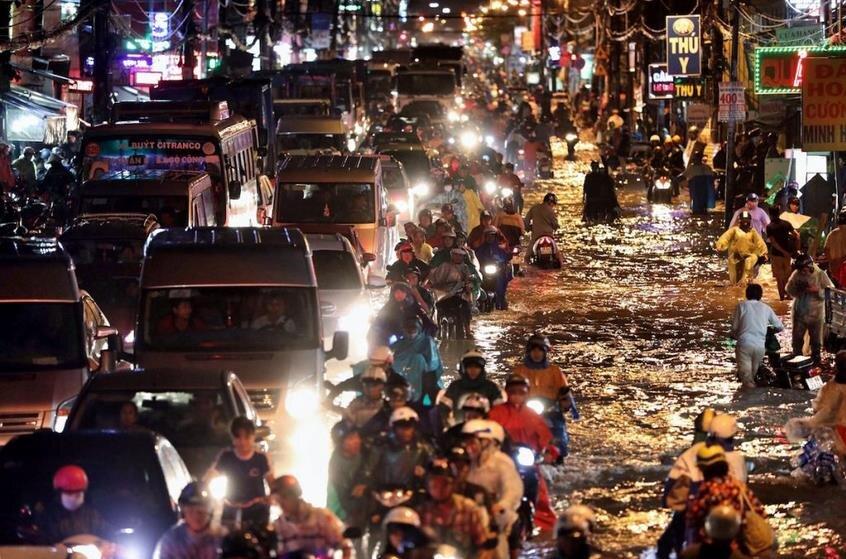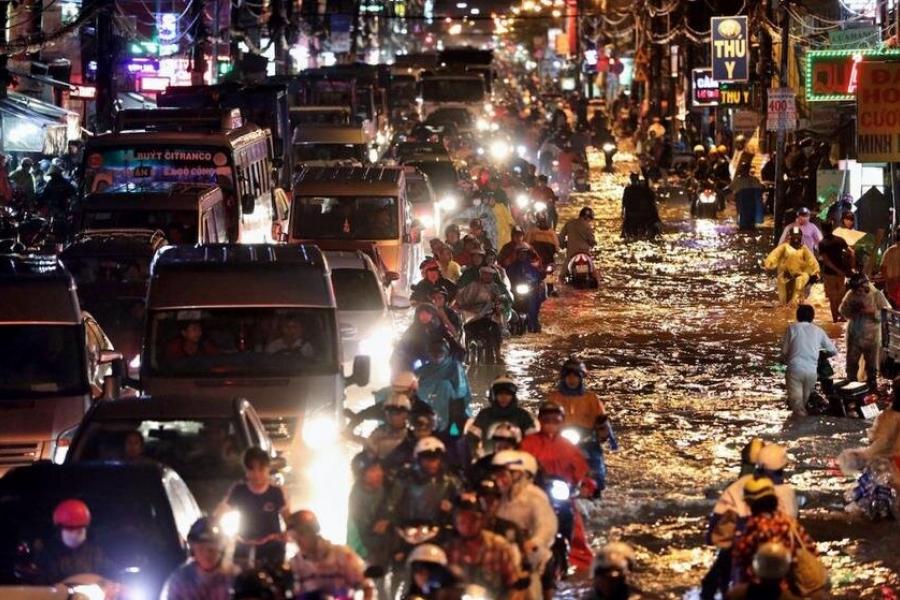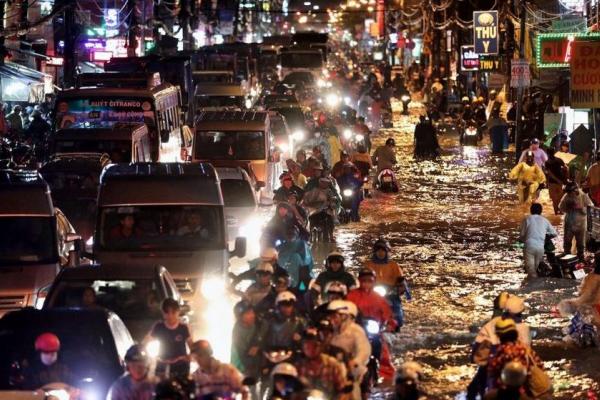Radical Resilience
Cities are particularly at risk in terms of anthropogenic climate change. Coastal cities like Ho Chi Minh City in Vietnam, which are affected by flooding and rising sea levels, are particularly at risk in the future. After Jakarta, the city is the fastest sinking city in the world, and it is estimated that 36% of HCMC will be submerged by 2050, resulting in enormous damage to basic infrastructure and the destruction of 69% of the city's slum areas. To address these climate threats, the city government plans to build a sea dyke that should function as a wall to protect the city from the lower Mekong Delta, known as the rice chamber of Southeast Asia, which is also under threat. At once, urban poor and women are especially in danger as they live in parts of the city that become deluged regularly. Due to these circumstances they have find their own ‘resilience’ practices to fight against the floods and their right to live well in the city.

The project takes an analytical look at these two resilience “strategies” and asks, “How is resilience produced and how is it contested in the city?” By conducting a multi-site ethnography, the project focuses on the one hand on processes of knowledge production about “resilience” that find their way into urban resilience policies and plans for the future (e.g., in the form of a sea dyke). On the other hand, alternative political sites that emerge alongside infrastructural violence, evoked by these policies, contest and challenge prevailing notions and predominant provisions about resilience-making. Through daily and anticipated practices that take shape in struggles over housing and living on the margins of the flood-prone city, these marginalized urban dwellers demonstrate a potential to transform the city and its future. In this regard, the project strives to go beyond a critical examination of power hegemonies and to actively co-constitute these alternative political sites through co-laborations.
Researcher: Kathrin Eitel


